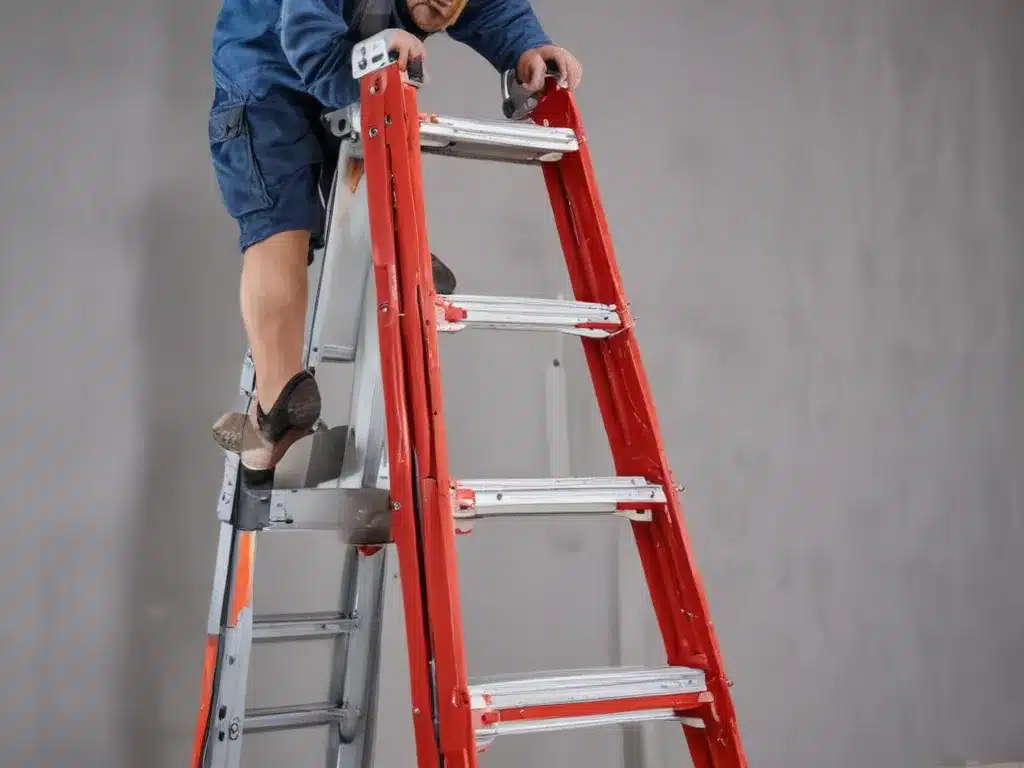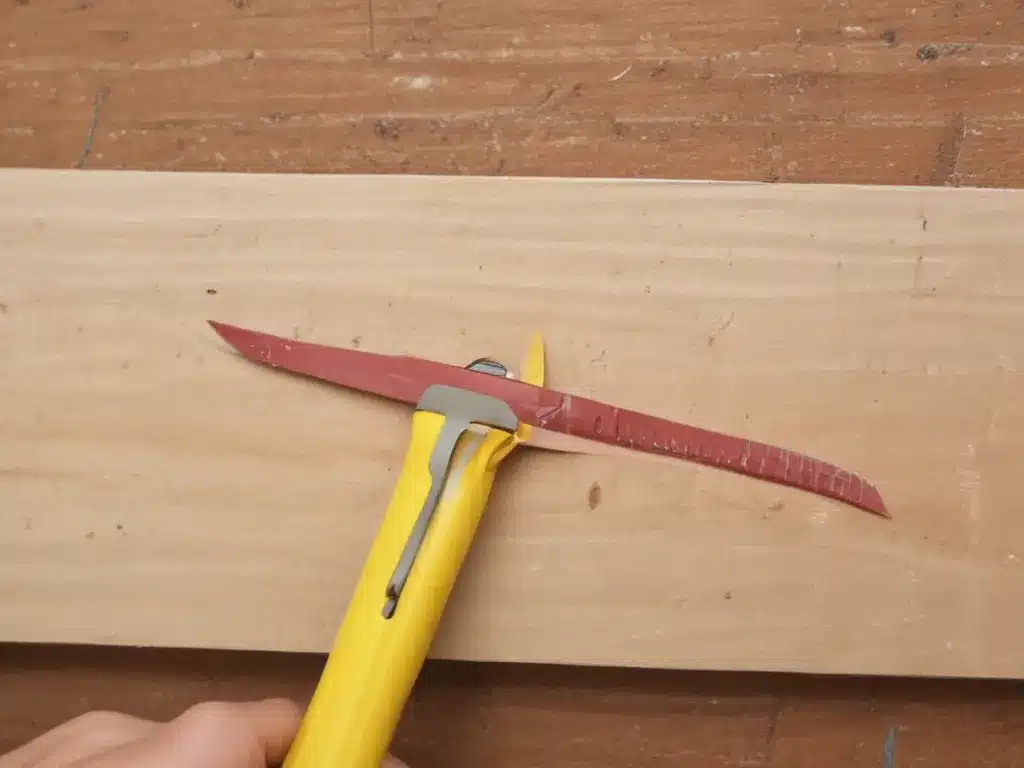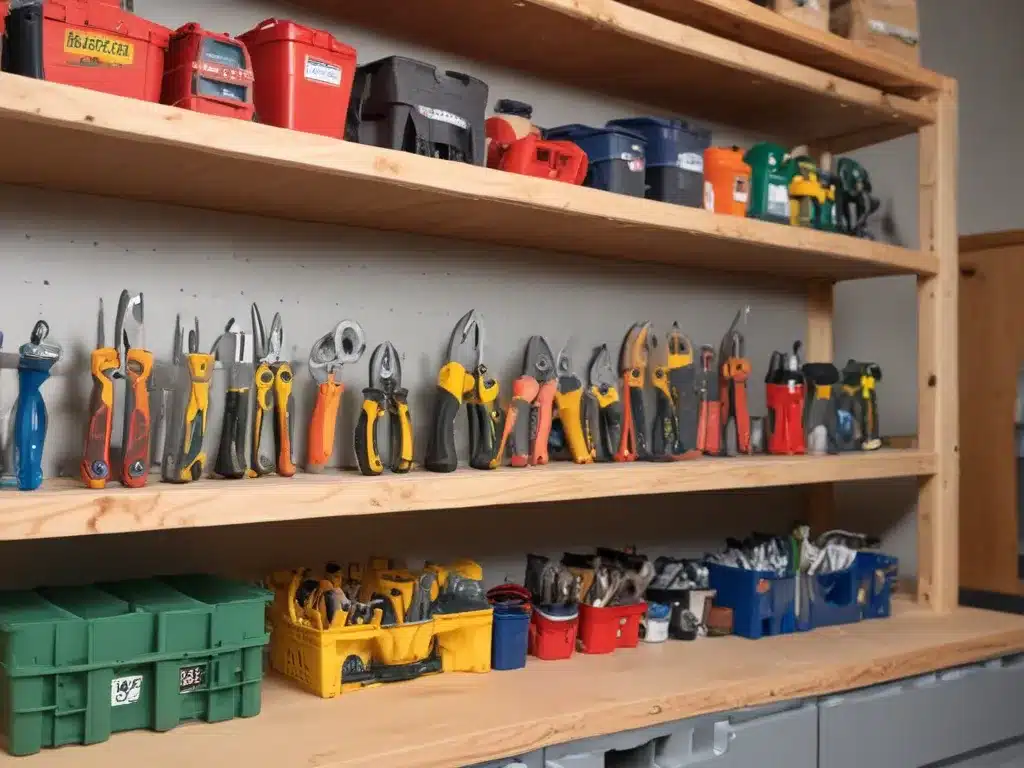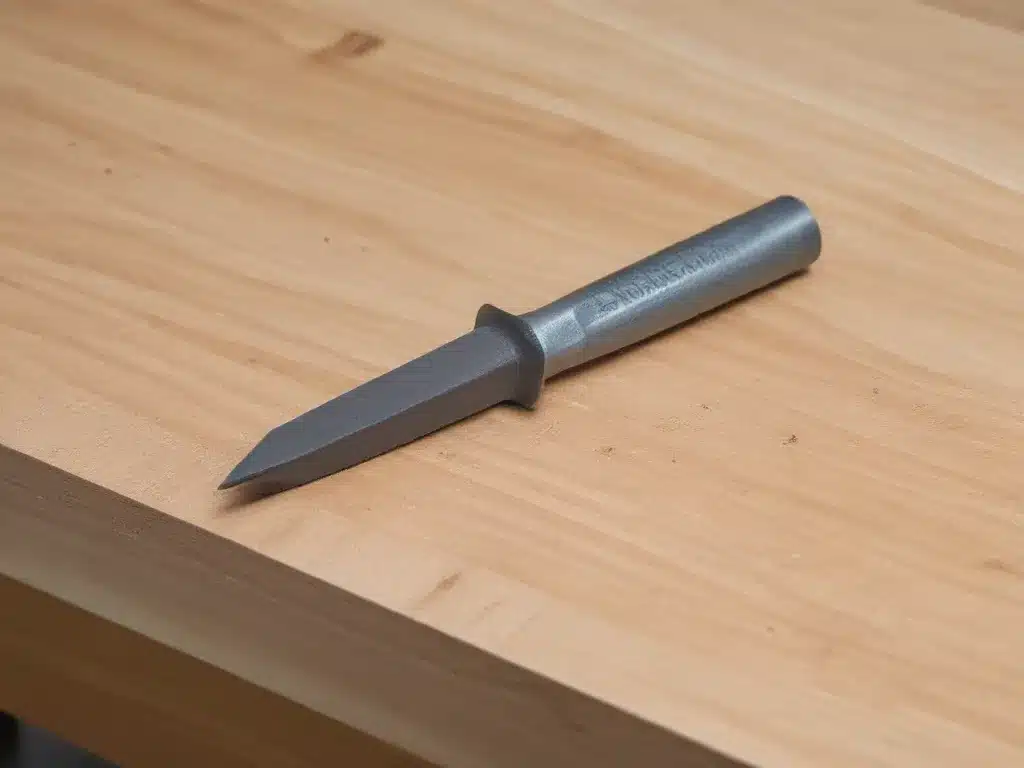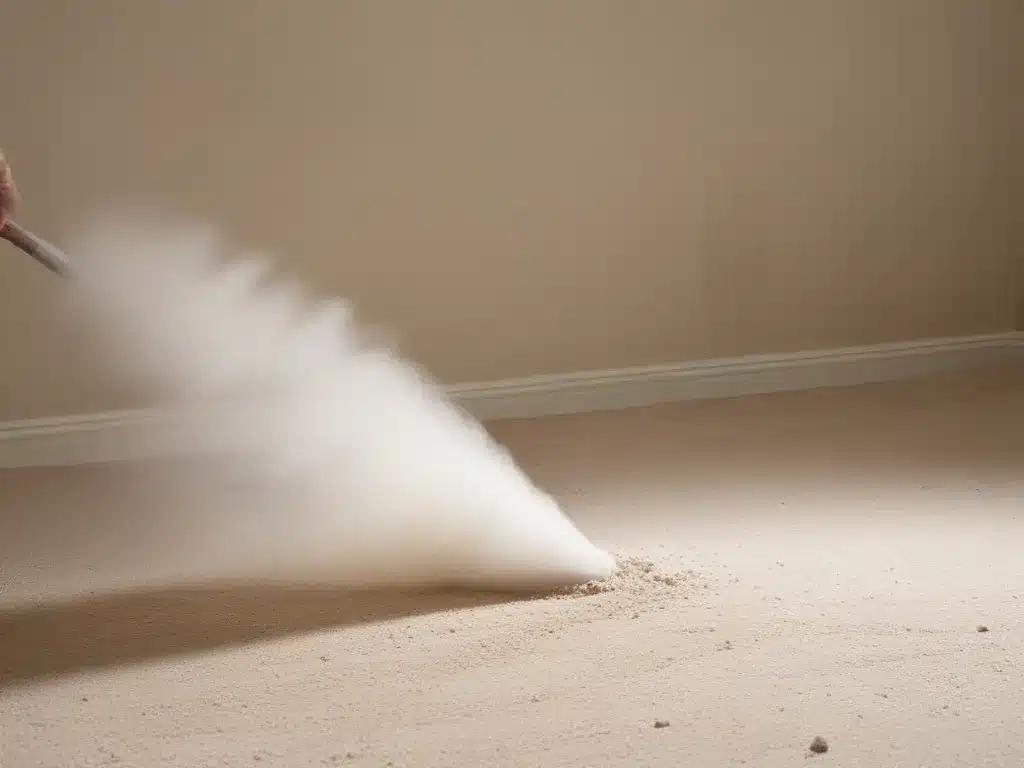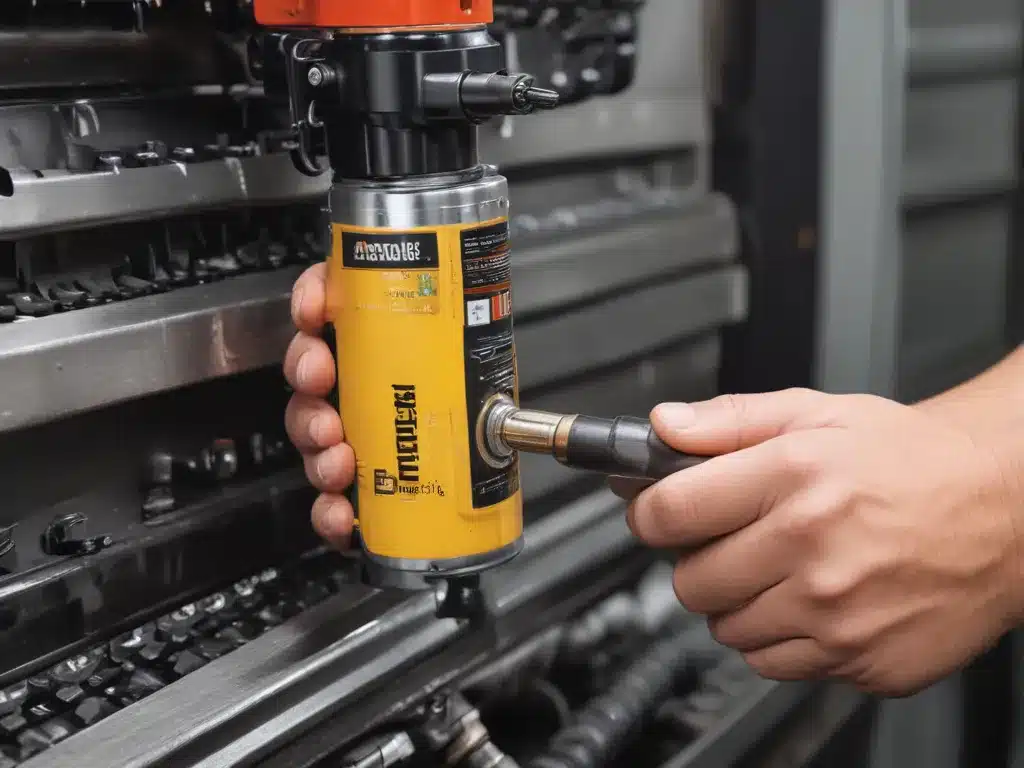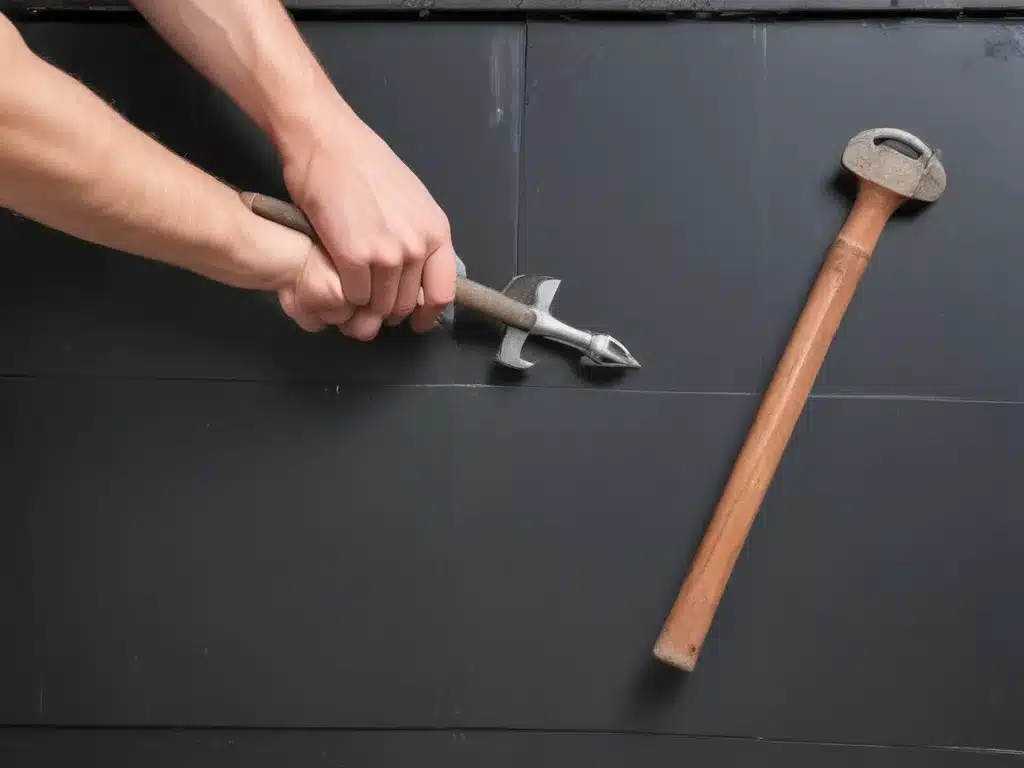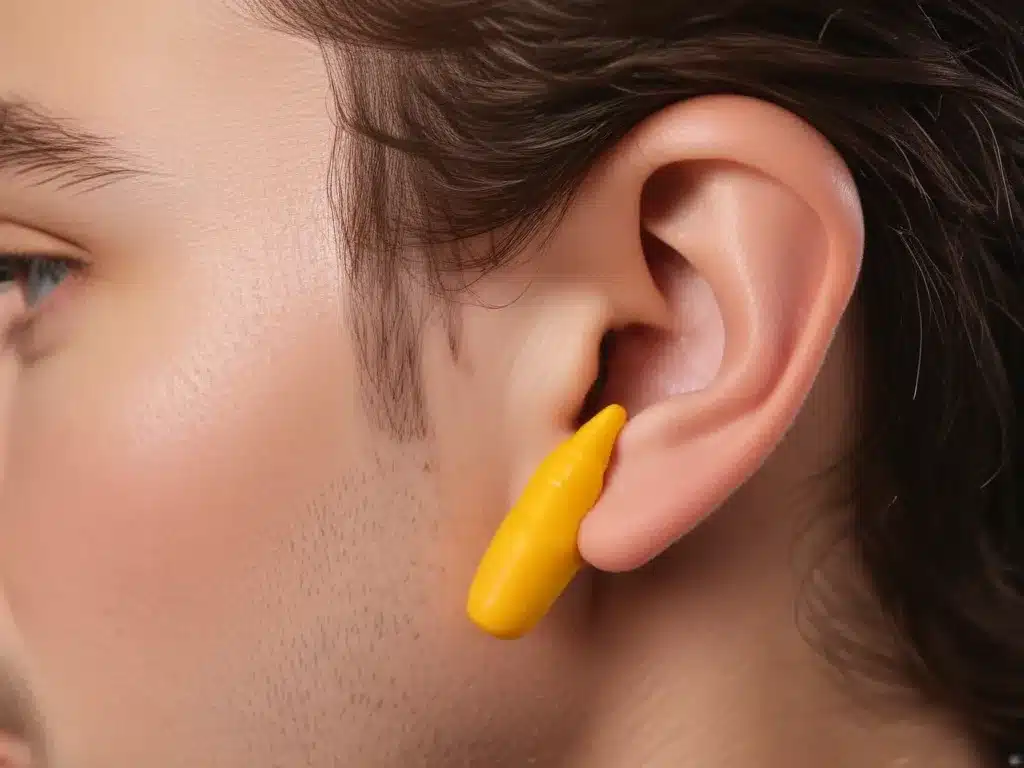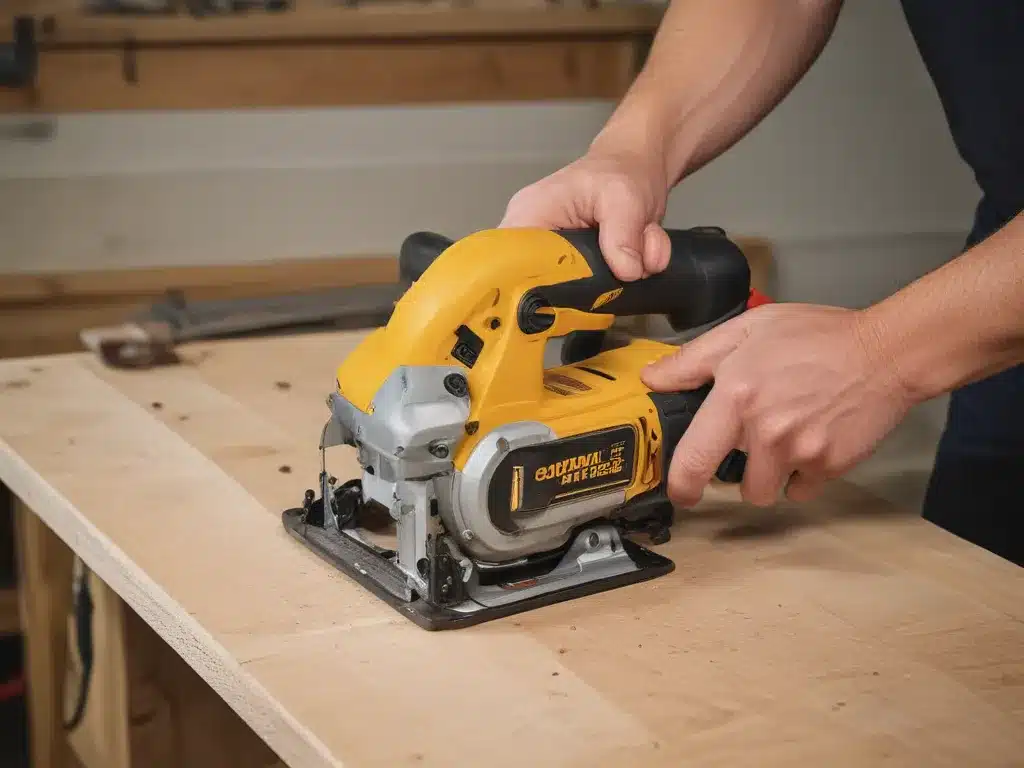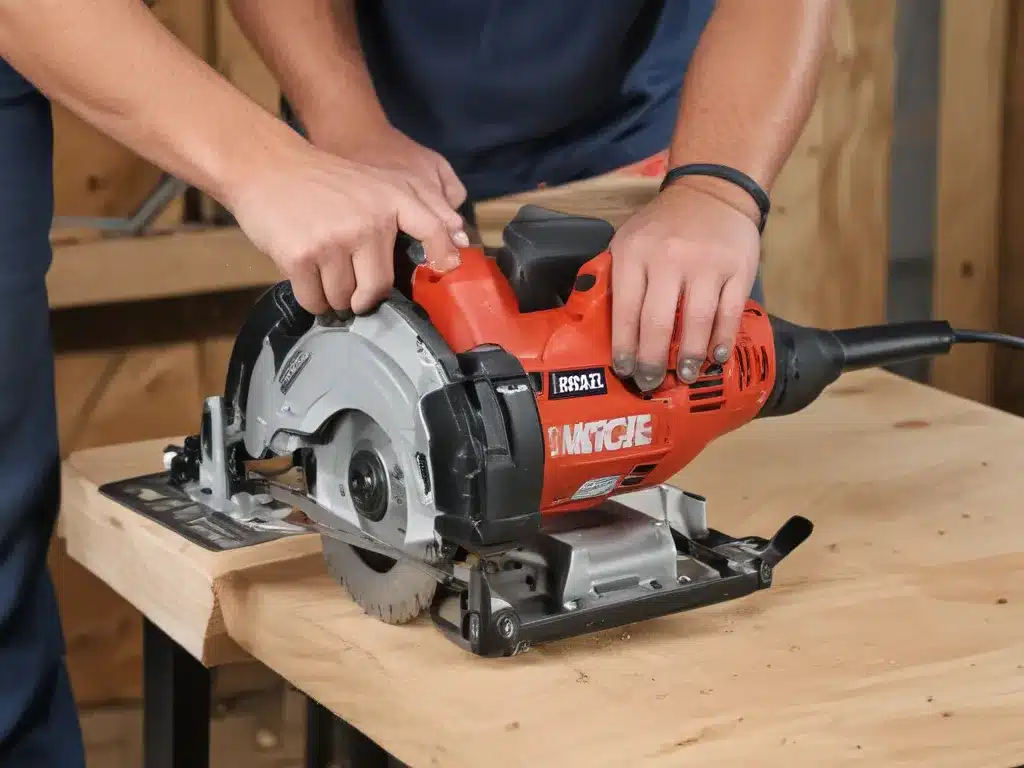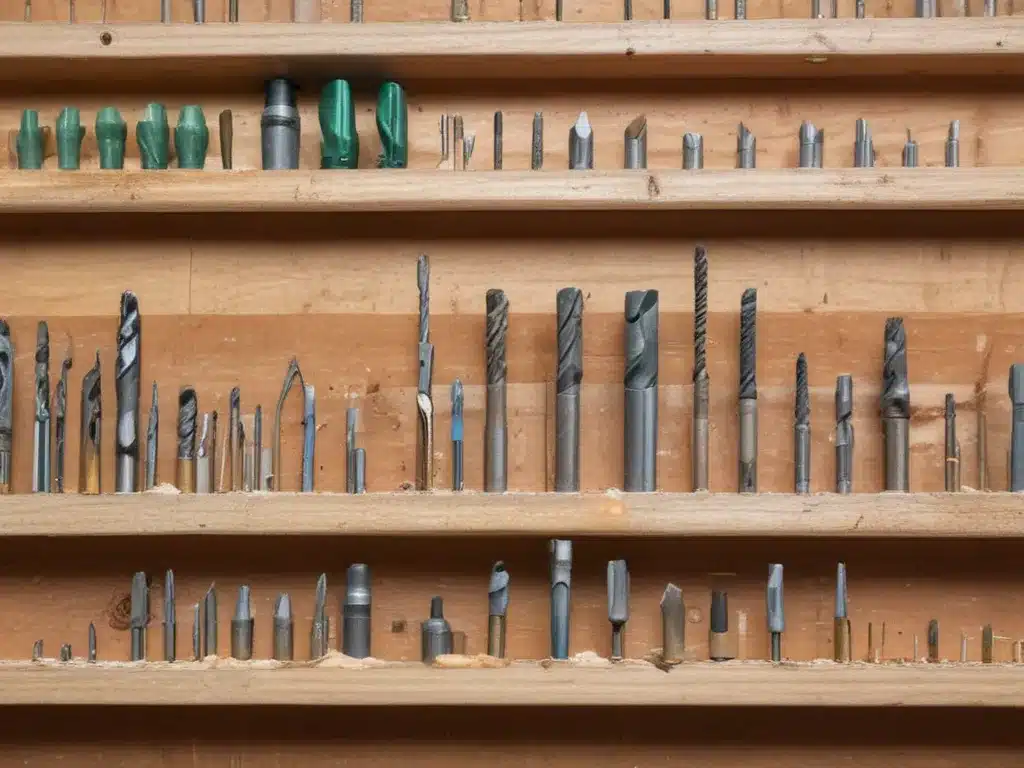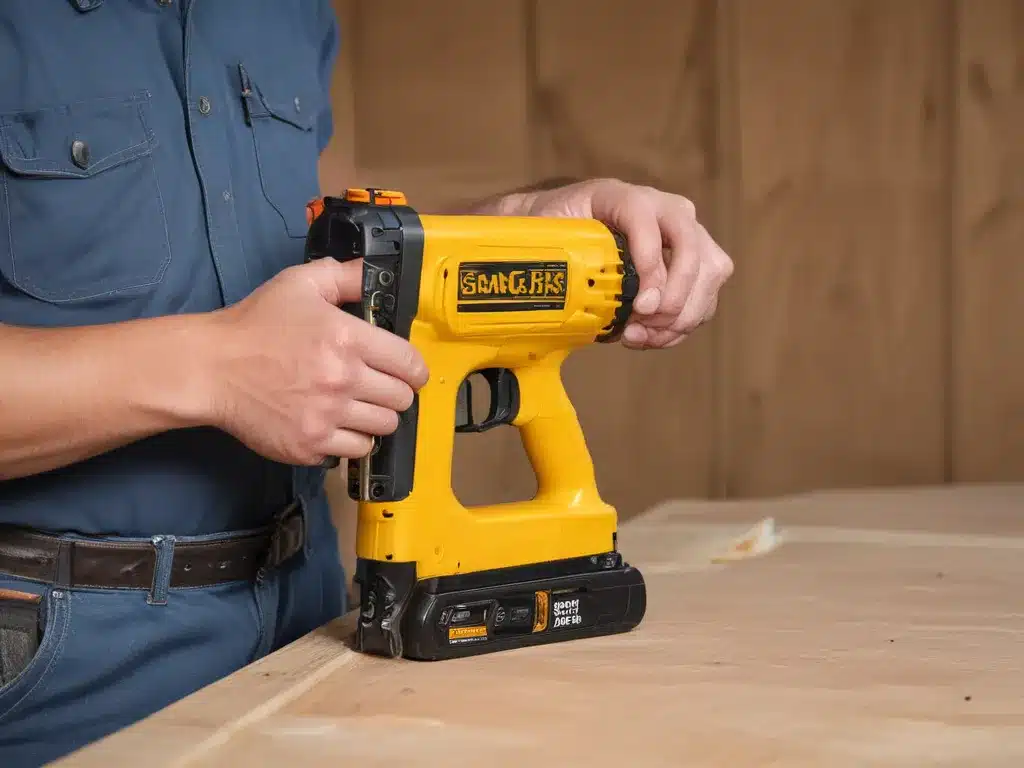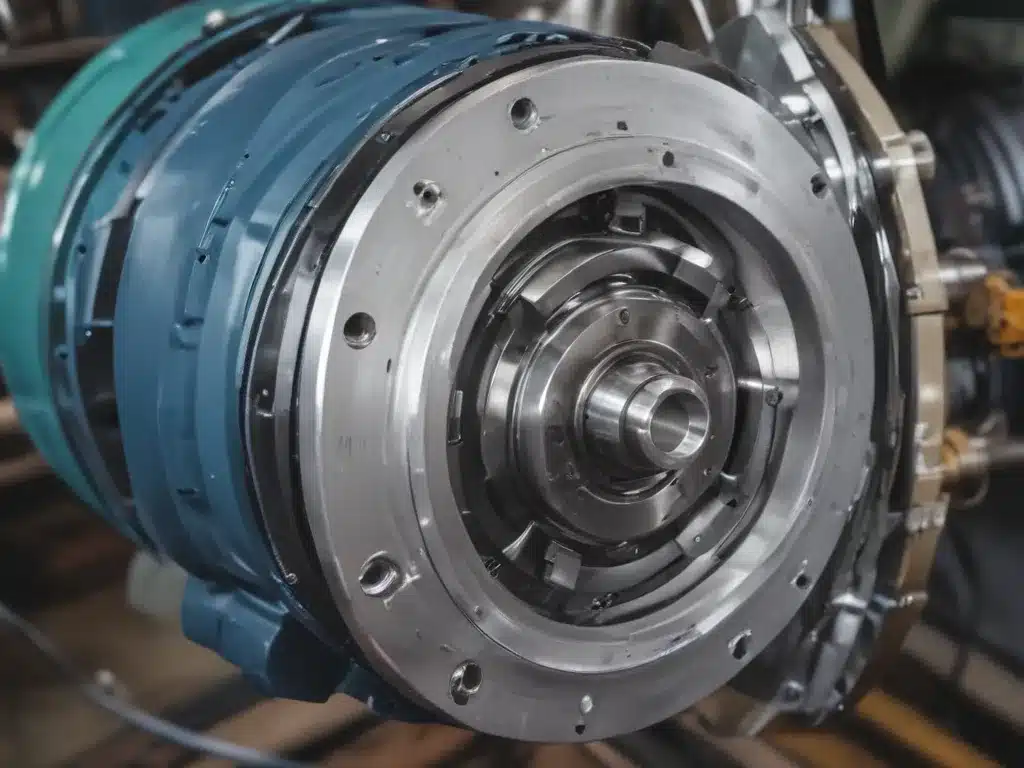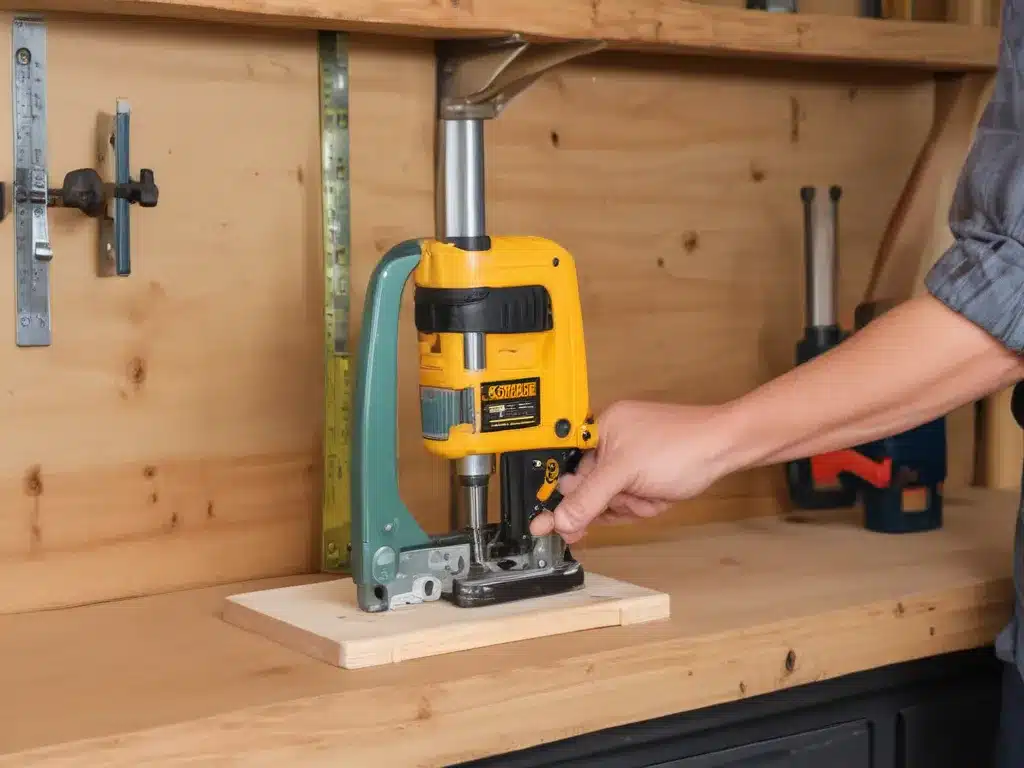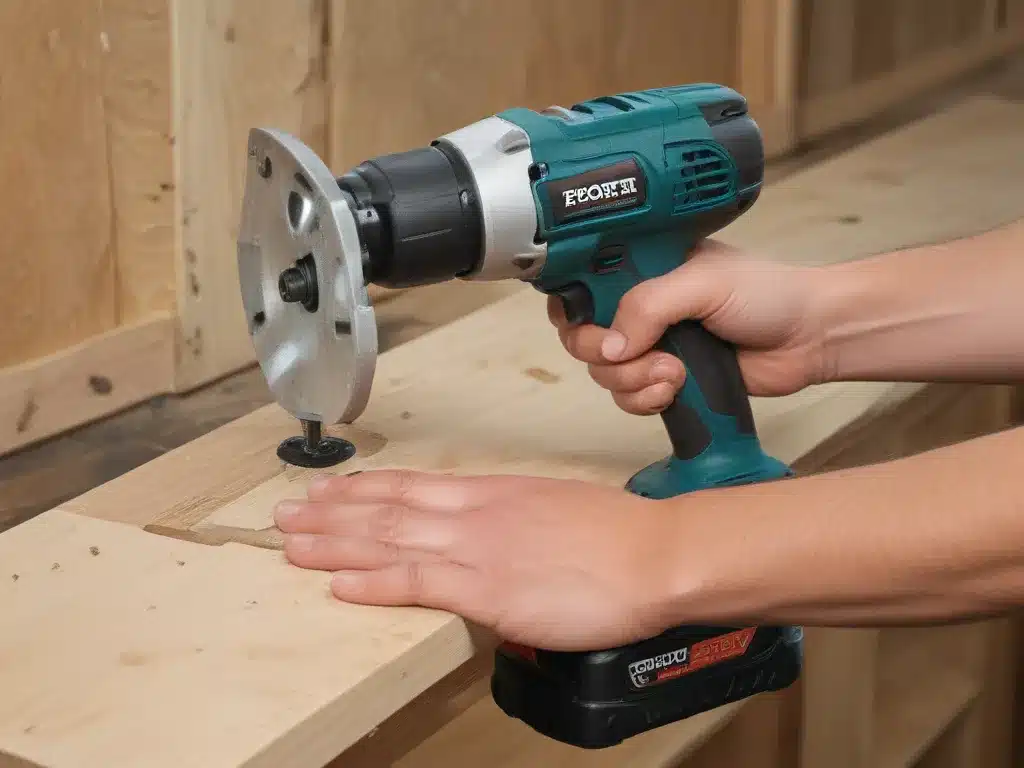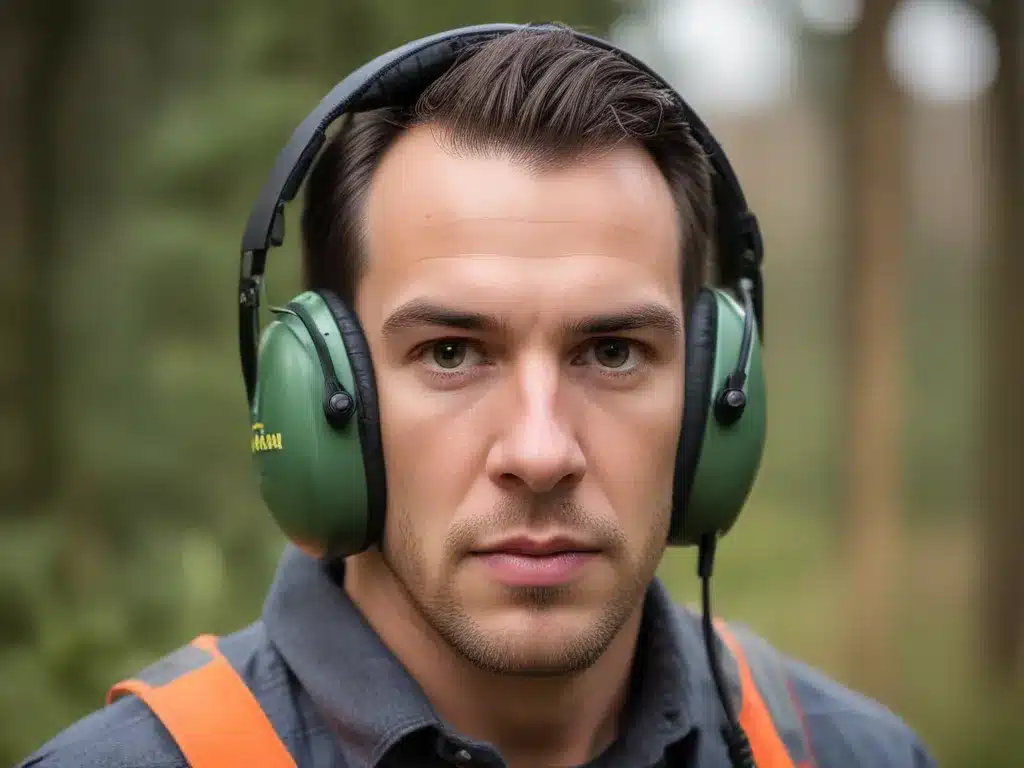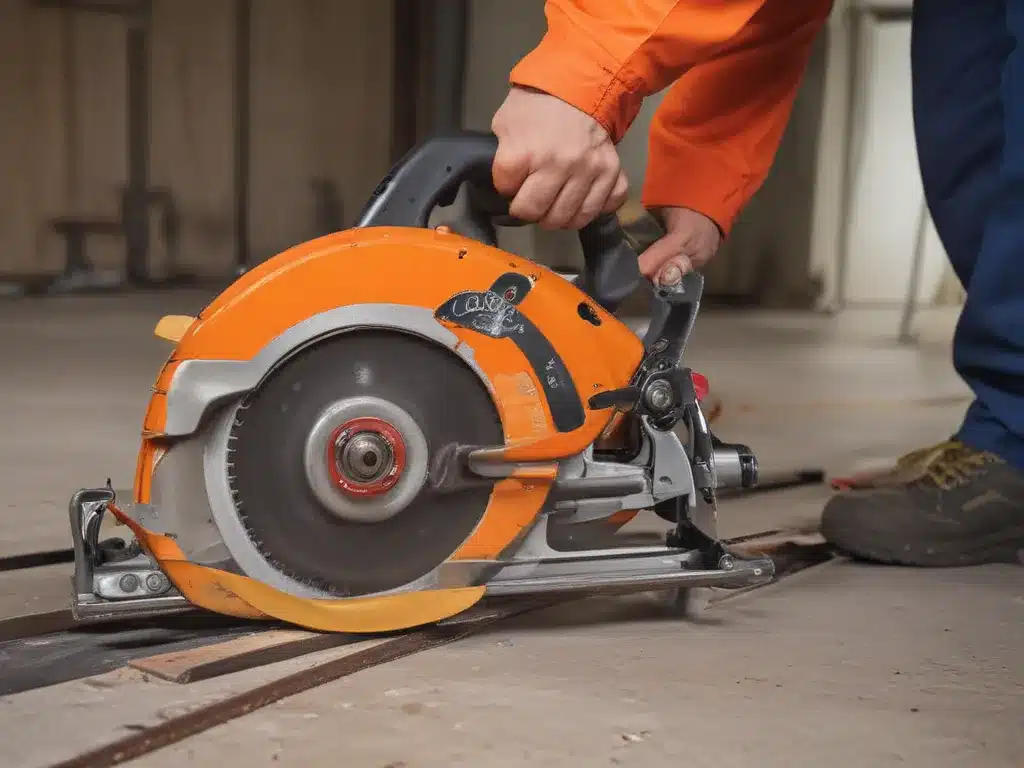Bench Grinders: The Unsung Heroes of the Workshop
Ah, the humble bench grinder – the unsung hero of the workshop! These trusty tools may not get the same fanfare as their flashier power tool cousins, but let me tell you, they are the workhorses that keep our projects humming along. Whether you’re sharpening chisels, smoothing welds, or giving that old tool a new lease on life, a good bench grinder is an indispensable addition to any serious DIYer’s or professional’s arsenal.
But with so many options out there, how do you choose the right bench grinder for your needs? Fear not, my friends, for I have donned my research cap and delved deep into the world of these unassuming yet mighty machines. In this comprehensive guide, I’ll walk you through all the key factors to consider when selecting the perfect bench grinder for your workshop.
Bench Grinder Basics: Understanding the Fundamentals
Before we dive into the nitty-gritty of what to look for, let’s start with the basics. A bench grinder is a stationary power tool that features one or more abrasive grinding wheels. These wheels are designed to remove material from the surface of whatever you’re working on, whether it’s a dull chisel, a rough weld, or a rusted tool.
The wheels on a bench grinder can come in a variety of sizes, grit sizes, and materials, each with their own unique characteristics and best-suited applications. Typically, you’ll find bench grinders with 6-inch or 8-inch wheels, though larger and smaller sizes are also available.
One of the key features of a bench grinder is its ability to maintain a consistent, even grinding motion. This makes it ideal for tasks that require precision and control, like sharpening tools or smoothing out metal surfaces. And with their sturdy construction and powerful motors, bench grinders can handle a wide range of materials and projects with ease.
Factors to Consider When Buying a Bench Grinder
Now that we’ve got the basics down, let’s dive into the nitty-gritty of what to look for when shopping for a bench grinder. From motor power to safety features, there are a lot of important factors to weigh. But don’t worry, I’ve got you covered!
1. Motor Power and Horsepower
One of the first things to consider is the motor power of the bench grinder. This is typically measured in horsepower (HP), and the higher the HP, the more powerful and capable the machine will be. For most general-purpose workshop tasks, a 1/2 HP to 1 HP motor should be more than sufficient. However, if you’re planning on tackling tougher jobs like heavy-duty metal removal or sharpening large tools, you may want to opt for a model with a 1.5 HP or even a 2 HP motor.
Keep in mind that motor power isn’t the only factor that determines a bench grinder’s performance. The quality of the motor, the bearings, and the overall construction of the machine also play a big role. So don’t just focus on the HP – also look for a well-made, durable bench grinder that will stand the test of time.
2. Wheel Size and Grit
Another crucial consideration is the size and grit of the grinding wheels. As I mentioned earlier, 6-inch and 8-inch wheels are the most common, but you can also find bench grinders with 4-inch or even 10-inch wheels.
The size of the wheels will determine the capacity of the grinder – larger wheels can handle bigger workpieces and more aggressive material removal. However, larger wheels also tend to be more expensive and take up more physical space in your workshop.
The grit of the wheels is equally important. Coarser grit wheels (36-60 grit) are great for rough grinding and material removal, while finer grit wheels (80-120 grit) are better suited for precision finishing and sharpening. Many bench grinders come with a combination of coarse and fine wheels, giving you the best of both worlds.
When choosing wheel size and grit, consider the types of tasks you’ll be using the bench grinder for. If you’ll be doing a lot of heavy-duty grinding, opt for larger, coarser wheels. But if precision sharpening is your primary need, go for a model with smaller, finer wheels.
3. Safety Features
Safety should always be a top priority when it comes to power tools, and bench grinders are no exception. Look for models that come equipped with a range of safety features, such as:
- Spark guards: These shields help to contain sparks and prevent them from flying towards you or your workspace.
- Eye shields: Adjustable eye shields protect your eyes from debris and help to reduce eye strain during prolonged use.
- Wheel guards: Full wheel guards enclose the grinding wheels, providing an extra layer of protection.
- Workrest adjustability: Easily adjustable workrests allow you to position your workpiece precisely and safely.
- Automatic shut-off: Some high-end bench grinders feature automatic shut-off mechanisms that cut power to the machine if it’s left unattended or experiences a problem.
These safety features may cost a bit more upfront, but they’re well worth the investment to ensure a safe and productive workshop environment.
4. Noise and Vibration
Bench grinders can be noisy beasts, and prolonged exposure to the high-pitched whine of their spinning wheels can be tiring and even damaging to your hearing. When shopping for a bench grinder, pay attention to the advertised noise level and look for models that incorporate noise-dampening features like rubber feet or vibration-reducing mounts.
Additionally, a well-balanced, high-quality bench grinder should operate with minimal vibration. Excessive vibration can lead to inaccurate and inconsistent grinding, as well as premature wear on the machine’s components. Look for bench grinders with sturdy, stable bases and precision-engineered bearings to minimize vibration.
5. Versatility and Accessories
Finally, consider the overall versatility of the bench grinder and the available accessories. Some models come equipped with features like tool rests, work lights, or even built-in cooling systems to enhance their functionality.
You may also want to look into compatible accessories like tool sharpening jigs, wire brushes, or polishing pads. These add-ons can greatly expand the capabilities of your bench grinder and make it an even more indispensable tool in your workshop.
Real-World Bench Grinder Applications and Case Studies
Now that we’ve covered the key factors to consider when buying a bench grinder, let’s take a look at how these versatile tools can be put to use in the real world. I’ve spoken with several seasoned DIYers and professional tradespeople to get their insights on some of the most common and interesting ways they’ve used their bench grinders.
Case Study 1: Sharpening Woodworking Tools
For avid woodworkers, a well-maintained set of chisels, plane irons, and other cutting tools is essential. But keeping these tools razor-sharp can be a time-consuming and delicate process. That’s where a bench grinder really shines.
“I use my bench grinder to quickly and easily sharpen all my woodworking tools,” says John, a seasoned furniture maker. “With the right wheels and a steady hand, I can get a perfect edge on my chisels in just a few minutes. It beats spending an hour hunched over a whetstone any day!”
John explains that he typically uses a coarse 36-grit wheel for the initial grinding, followed by a finer 80-grit wheel for the final honing. He’s also invested in a specialized tool sharpening jig that helps him maintain the perfect bevel angle on his chisels and plane irons.
Case Study 2: Smoothing Welds and Metalwork
For metal fabricators and welders, a bench grinder is an indispensable tool for smoothing out rough welds and edges. Sara, a skilled metalworker, relies on her bench grinder for this task on a daily basis.
“Having a good bench grinder in the shop is a must for me,” Sara says. “Whether I’m working on a custom metal sculpture or repairing heavy machinery, I use it to grind down those unsightly weld beads and sharp edges. It saves me so much time and effort compared to trying to file everything by hand.”
Sara prefers to use a coarse 60-grit wheel for the initial grinding, then switches to a finer 100-grit wheel for the final finishing touches. She also emphasizes the importance of proper safety gear, like heavy-duty gloves and a face shield, when working with a bench grinder.
Case Study 3: Restoring and Sharpening Tools
For DIY enthusiasts and small-scale repair shops, a bench grinder can be a lifesaver when it comes to restoring old, neglected tools. Mike, a self-proclaimed “tool collector and fixer-upper,” has used his bench grinder to breathe new life into countless hand tools over the years.
“I love finding old, rusty tools at garage sales and flea markets and bringing them back to their former glory,” Mike says. “My bench grinder is essential for grinding off the pitting and corrosion, then reshaping and re-sharpening the edges. It’s amazing how a few minutes on the grinder can transform a beat-up old tool into something that works like new.”
Mike emphasizes the importance of using the right grinding wheel for the job – he typically starts with a coarse 36-grit wheel to remove the bulk of the damage, then moves to finer 80-grit and 120-grit wheels for the final polishing and sharpening.
Choosing the Right Bench Grinder for Your Needs
Whew, that’s a lot of information to digest! But I hope I’ve given you a solid understanding of the key factors to consider when selecting a bench grinder for your workshop. Remember, the “perfect” bench grinder is the one that best fits your specific needs and project requirements.
Do you need a heavy-duty machine for serious metal removal and sharpening? Or are you looking for a more compact, versatile model that can handle a wide range of tasks? Consider your priorities, your budget, and the types of projects you’ll be tackling, and let that guide your decision.
And don’t forget, if you’re in the market for a new bench grinder or any other power tools, be sure to check out Power Tools Pros. They’ve got a great selection of top-quality tools and accessories, all at competitive prices. Happy shopping, and may your bench grinder serve you well for years to come!


